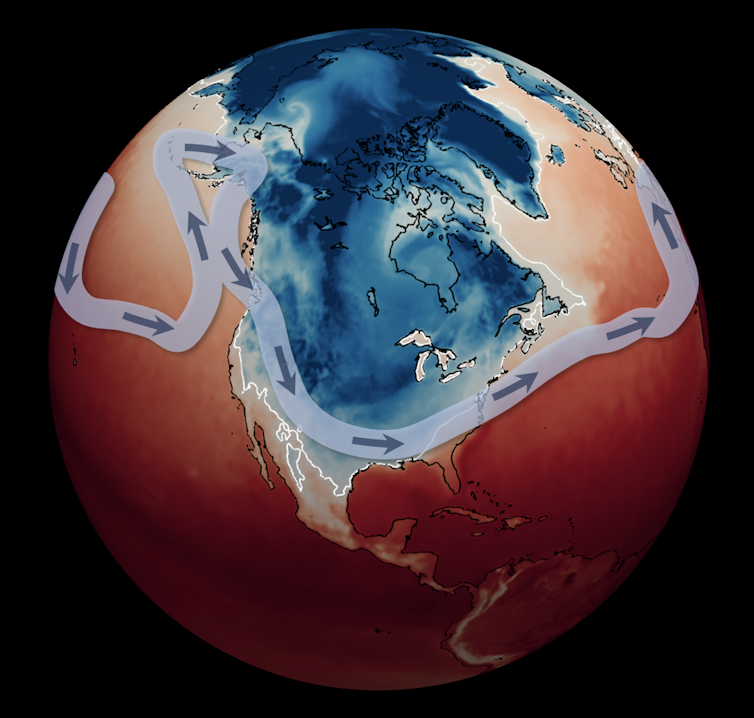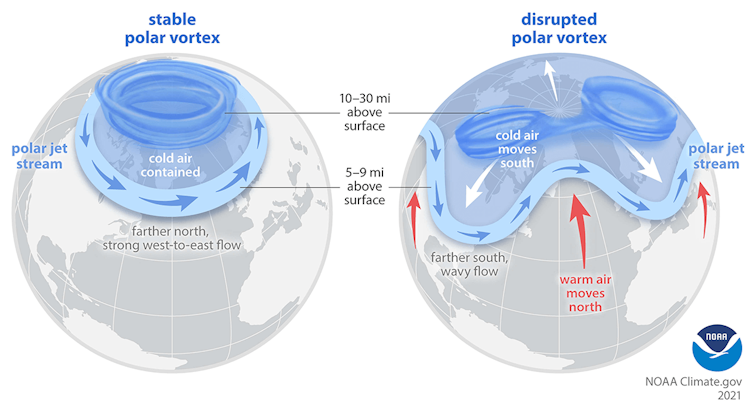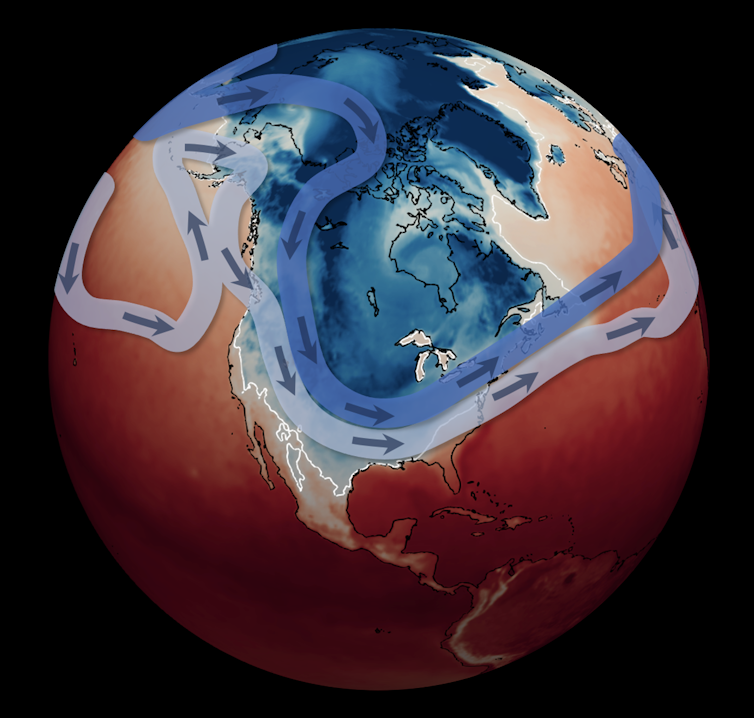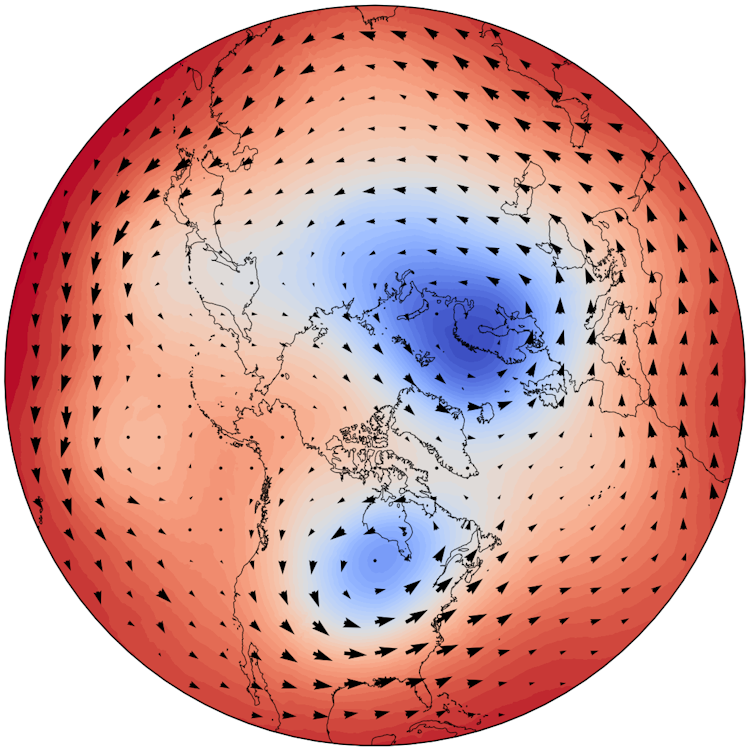
By Mathew Barlow
Over the past few days, extremely cold Arctic air and severe winter weather have swept southward into much of the U.S., breaking daily low temperature records from Montana to Texas. Tens of millions of people have been affected by dangerously cold temperatures, and heavy lake-effect snow and snow squalls have had severe effects across the Great Lakes and Northeast regions.
These severe cold events occur when the polar jet stream – the familiar jet stream of winter that runs along the boundary between Arctic and more temperate air – dips deeply southward, bringing the cold Arctic air to regions that don’t often experience it.

Mathew Barlow/UMass Lowell, CC BY
An interesting aspect of these events is that they often occur in association with changes to another river of air even higher above the jet stream: the stratospheric polar vortex, a great stream of air moving around the North Pole in the middle of the stratosphere.
When this stratospheric vortex becomes disrupted or stretched, it can distort the jet stream as well, pushing it southward in some areas and causing cold air outbreaks.

NOAA
The current Arctic cold blast fits into this pattern, with the polar vortex stretched so far over the U.S. in the lower stratosphere that it has nearly split in two. There are multiple causes that may have led to this stretching, but it is likely related to high-latitude weather in the prior two weeks.

Mathew Barlow/UMass Lowell, CC BY

Mathew Barlow/UMass Lowell
No, cold doesn’t contradict global warming
After Earth just experienced its hottest year on record, it may seem surprising to set so many cold records. But does this cold snap contradict human-caused global warming? As an atmospheric and climate scientist, I can tell you, absolutely and unequivocally, it does not.
No single weather event can prove or disprove global warming. Many studies have shown that the number of extreme cold events is clearly decreasing with global warming, as predicted and understood from physical reasoning.
Whether global warming may, contrary to expectations, be playing some supporting role in the intensity of these events is an open question. Some research suggests it does.
The February 2021 cold wave that severely disrupted the Texas electric grid was also associated with a stretched stratospheric polar vortex. My colleagues and I have provided evidence suggesting that Arctic changes associated with global warming have increased the likelihood of such vortex disruptions. The effects of the enhanced high latitude warming known as Arctic amplification on regional snow cover and sea ice may enhance the weather patterns that, in turn, result in a stretched polar vortex.
More recently, we have shown that for large areas of the U.S., Europe and Northeast Asia, while the number of these severe cold events is clearly decreasing – as expected with global warming – it does not appear that their intensity is correspondingly decreasing, despite the rapid warming in their Arctic source regions.
So, while the world can expect fewer of these severe cold events in the future, many regions need to remain prepared for exceptional cold when it does occur. A better understanding of the pathways of influence between Arctic surface conditions, the stratospheric polar vortex and mid-latitude winter weather would improve our ability to anticipate these events and their severity.
![]()
Mathew Barlow is Professor of Climate Science at UMass Lowell.





























JimboXYZ says
Yet somehow this isn’t the coldest winter in Flagler County. Last winter (2022-2023) we had a couple of days in the mid to upper 20’s. The coldest lows haven’t reached 32* F for freezing this winter (2023-2024).
DaleL says
Correct. I have a Davis weather station in my backyard. It recorded 25 degrees on December 25, 2022, at 6:40 am. As I write this, the temperature is 35 degrees, the coldest of this winter season.
Extreme weather comes and goes. 2022 also had one of the hottest summers with a maximum of 104 degrees on June 23rd. Global climate change/warming is the averaging of all weather events over dozens or even hundreds of years.
Endangered species says
republicons arent intersted in facts and believe if it snows anywhere there’s no global warming so every winter it’s a hoax. They dont know difference between weather and clinate. Besides they busy banning books like the dictionary that cause so much harm to worry about things like mass death or livable futures.